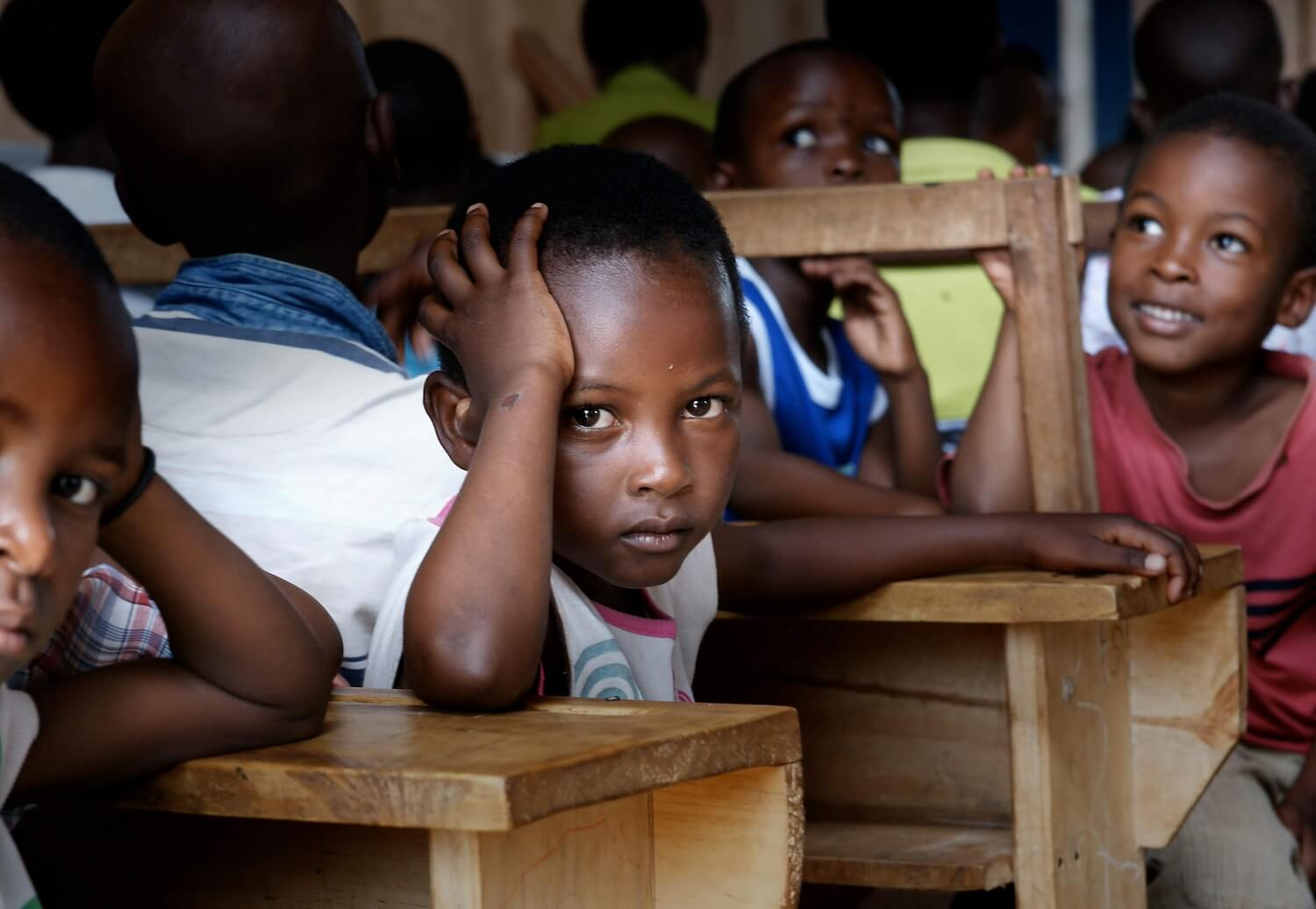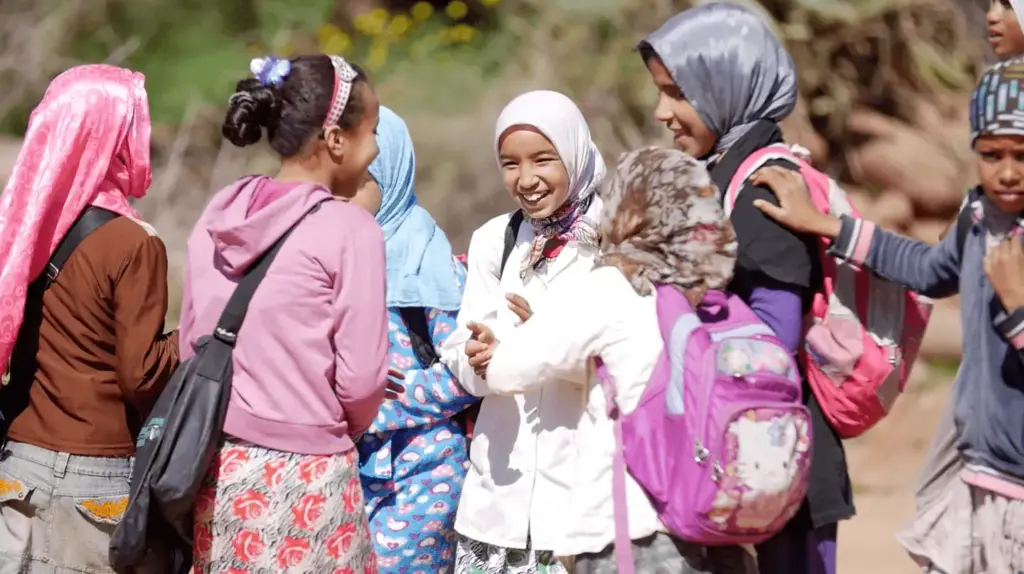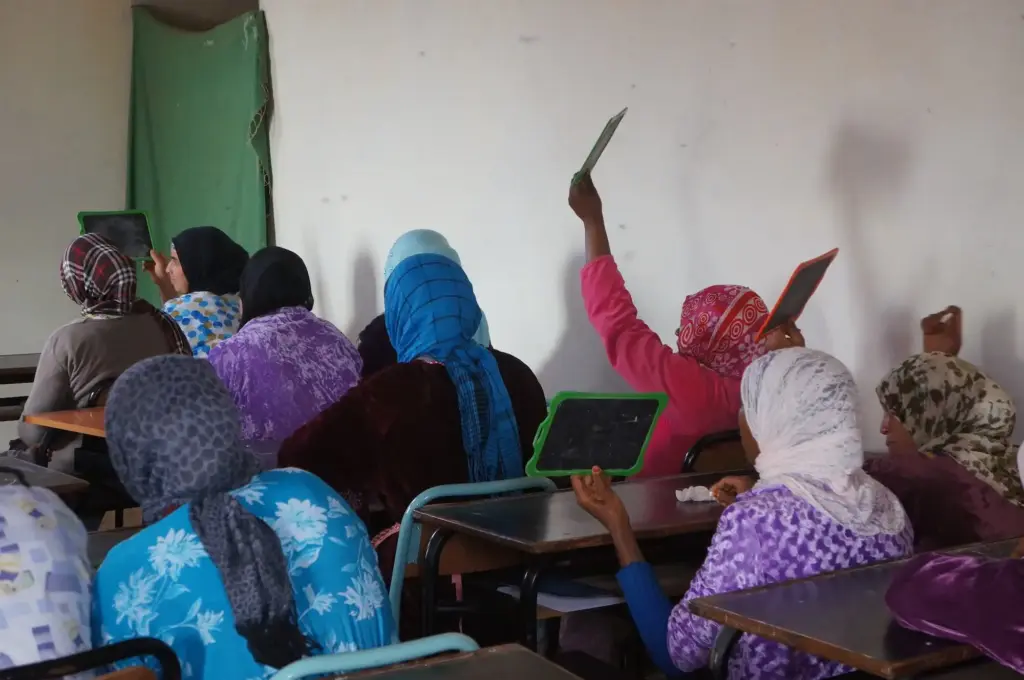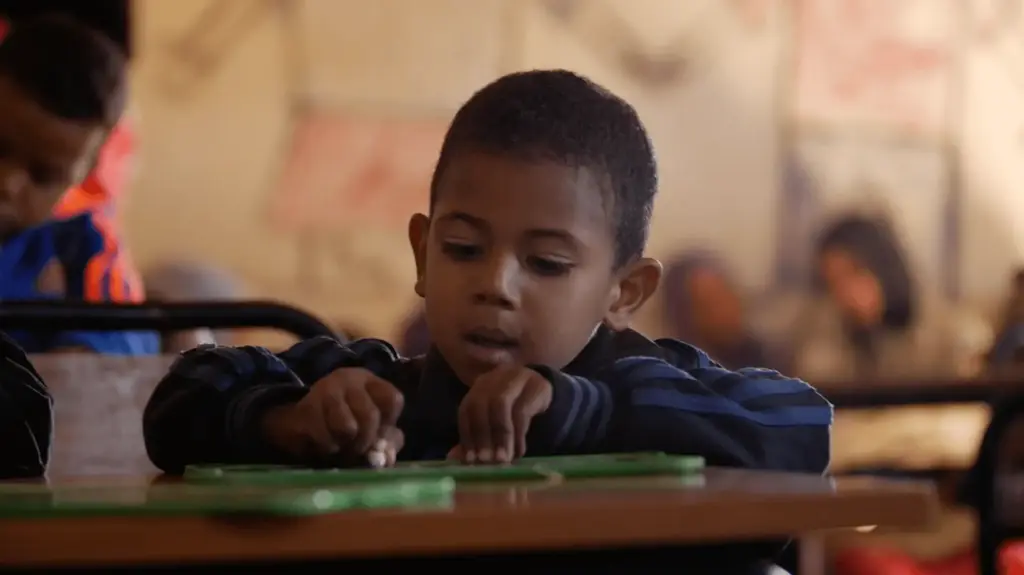Facts, Context and the Way Forward
Poverty in Africa
Dimensions of Poverty in Africa
Sub-Saharan Africa is the region with the highest poverty rate in the world. According to the World Bank, around 40% of the population live below the international poverty line of $2.15 a day – some 400 million people. These figures underline the immense challenge of fighting poverty in Africa.

Forms of Poverty in Africa
Poverty in Africa takes many forms. Economic poverty is widespread, as many households lack access to a stable income, making it difficult to meet basic needs such as food, shelter and clothing. Many children also lack access to education in Africa, with around a third of children in sub-Saharan Africa suffering from educational poverty. This severely limits the long-term chances of overcoming poverty. Health poverty manifests itself in inadequate medical care, leading to high child mortality, low life expectancy and the spread of diseases such as malaria, HIV/AIDS and tuberculosis. The inability to realise basic human rights in Africa – such as access to education, health care and security – reinforces this vicious cycle.
Regional Disparities
Poverty in Africa is not evenly distributed across the continent. In West Africa, for example, up to 80% of the population of Niger is affected by extreme poverty due to drought and low agricultural productivity. In East Africa, Somalia suffers from chronic instability and weak governance, making poverty reduction a particular challenge. In contrast, South Africa has one of the continent’s largest economies, but large segments of the population remain poor due to unequal distribution of wealth, and unemployment is expected to exceed 30% by 2024.

Causes of Poverty in Africa
The causes of poverty in Africa are deeply rooted in the continent’s history and continue to affect its present.
Historical Causes of Africa’s Poverty
Colonialism exploited Africa’s natural resources while investing little in sustainable structures. European colonial powers created dependencies and hindered the development of independent economic systems. After independence, many countries struggled to establish stable governments. Resource conflicts and ethnic tensions exacerbated these problems.
Economic Causes of Poverty in Africa
Economic factors also play a significant role in Africa’s poverty. Many people work in the informal sector, where incomes are unstable and working conditions precarious. Despite Africa’s wealth in natural resources such as gold, diamonds and oil, only a small elite benefits from this wealth, leaving the majority excluded.
The Impact of Political Instability and Corruption on Poverty in Africa
Political instability and corruption are critical reasons why poverty in Africa remains widespread. Regions such as the Congo and Somalia are plagued by protracted conflict, which destroys infrastructure and drives migration within Africa. Meanwhile, a lack of transparency and cronyism prevent aid money and resources from reaching the people.


Climate Change and Environmental Factors
Climate change and environmental problems are exacerbating the situation. Droughts and floods, exacerbated by climate change, are disrupting agricultural production. The Sahel region, for example, is suffering from increasing desertification. In many areas, unsustainable resource use is leading to land degradation and long-term productivity losses, resulting in recurrent famines in Africa.
Consequences of Poverty in Africa
The consequences of poverty in Africa are severe and affect many aspects of life.
Political and Social Consequences
The social consequences are particularly evident in education and health care. Child labour is widespread as families rely on extra income. As a result, millions of children are unable to attend school, severely limiting their future opportunities. Malnutrition is a major cause of child mortality. At the same time, lack of access to basic health care means that preventable diseases often become fatal.
Poverty in Africa also fuels social tensions, often leading to violence or mass migration. Many young people seek a better life in Europe or elsewhere. Hopelessness and the absence of state structures also encourage crime and social decay.
Economic Consequences
The economic consequences are equally severe. People living in poverty are often unable to fulfil their potential, which hinders the overall development of the region. Many countries are dependent on international aid, which further limits their independence.

Actions Against Poverty in Africa
Poverty in Africa can be alleviated and reduced through comprehensive measures.
International Cooperation
The global community has an important responsibility to address the historical injustices of colonialism and centuries of exploitation. International cooperation has a crucial role to play. Organisations such as the United Nations, the World Bank and many NGOs are dedicated to sustainable development projects, ranging from education initiatives to improved health care. Rather than funding short-term aid programmes, many organisations focus on long-term strategies that promote the self-reliance of affected communities.
Education and Healthcare
Investing in education and health care is essential for sustainable improvements in living conditions. Building schools and hospitals not only provides basic infrastructure, but also lays the foundation for a more equitable future. Women and girls, who are disproportionately affected by poverty and whose rights are often neglected in many African countries, are at the centre of these efforts.
The ABURY Foundation is committed to empowering women and promoting women’s rights in Africa. Initiatives such as the ABURY Hospitality Academy help women create new opportunities through education and economic independence, enabling them to break out of poverty.


Economic Development
Economic development activities are also vital in the fight against poverty in Africa. Microcredits enable individuals to start businesses and generate income. Training and access to modern agricultural techniques can increase yields while promoting environmental sustainability.
Poverty in Africa is a complex problem with historical, economic, political and environmental roots. But there is hope: targeted action, international cooperation and the empowerment of local initiatives can lead to sustainable change. It is up to the global community to take the necessary steps to help Africa meet this challenge.
The ABURY Foundation’s role
The ABURY Foundation plays a significant role in combating poverty in Africa by promoting targeted educational initiatives that have long-term positive impacts on the living conditions of local people. Education is a key lever in the fight against poverty, as it provides access to better job opportunities, a more stable livelihood, and stronger social participation.
The ABURY Foundation supports educational programs that break down barriers to access to knowledge and professional qualifications. Especially women and girls, who are often affected by poverty, benefit from this, as education helps them unlock their potential and escape poverty. These programs not only promote individual development but also contribute to the economic and social improvement of entire communities.
Help us to promote education in Africa!
Donate a regular amount and become part of our circle of friends.
Frequently asked questions
How does poverty in Africa affect children?
Poverty in Africa prevents many children from attending school as they have to work to support their families, creating a cycle of poor education and limited future opportunities. At the same time, lack of healthcare increases child mortality and makes preventable diseases life-threatening.
What can be done to reduce poverty in Africa?
Sustainable poverty reduction in Africa requires investment in education and health, international cooperation, the promotion of economic independence through microcredit, and support for local initiatives. Long-term strategies that promote self-reliance are key.
Why are some regions of Africa more affected by poverty than others?
Differences in poverty in Africa are due to factors such as geography, political stability and economic development. For example, West Africa suffers from extreme poverty due to drought and low productivity, while South Africa has high poverty rates despite its strong economy because of unequal distribution of wealth.





